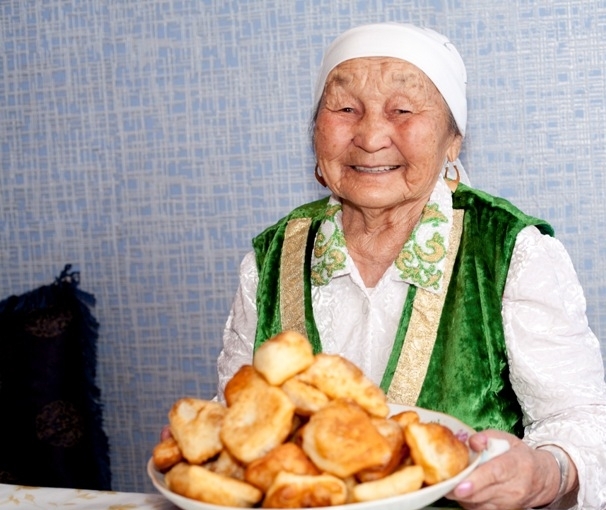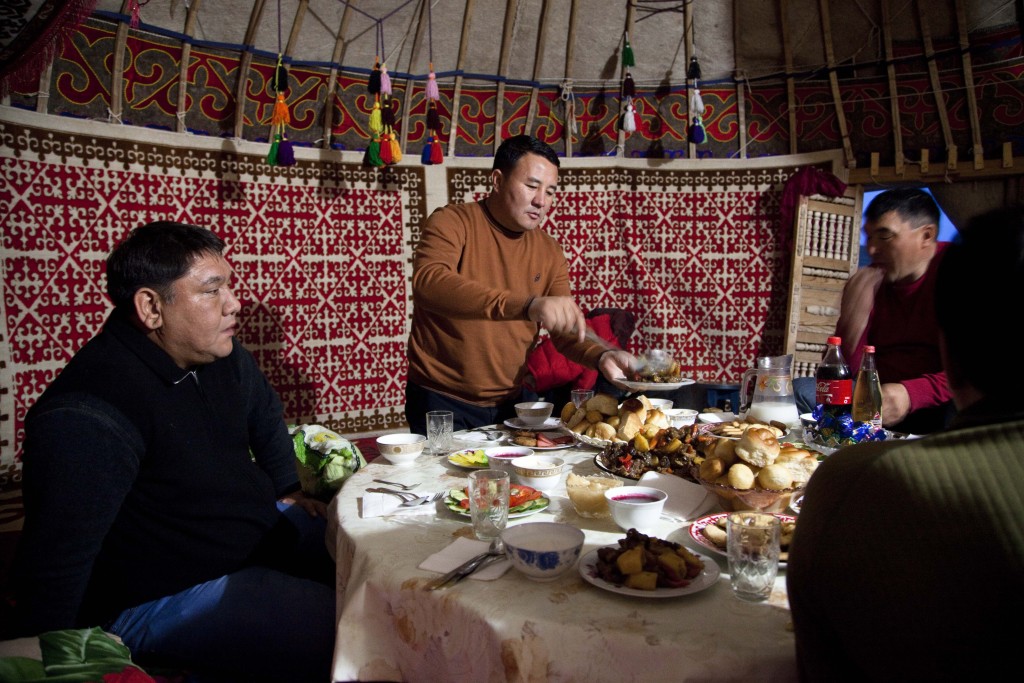The Importance of Hospitality in Kazakhstan
We continue our series of posts from the Anthropology of Food class (ML 641) in which students reflect on current issues, discuss assignments they have worked on, or address topics of particular interest to them. Today’s post is from Kaitlin Valli.
When I first started looking into Kazakhstan for my final project, I wasn’t sure what I’d find—I chose it a bit haphazardly, simply because the country was huge and I had realized, looking at the map, that I knew almost nothing about it. But as I looked into it, I was interested to see that a strong culture of hospitality developed there centuries ago and is still an identity marker today. The importance of sharing food and drink is a common theme across cultures, of course, but in Kazakhstan it seemed to take on another level of significance. The Kazakh language has dozens of words for different types of guests, and many proverbs referring to the blessing a guest brings to the family, which range from reverent (“If a guest comes, abundance comes with him or her”) to cautionary (“A guest sits briefly, but notices a lot”) to outright threatening (“If you don’t accept the guest, there won’t be any happiness or abundance in your home.”)

That a culture of being a good host and gracious guest evolved makes practical sense—back when people were nomadic and spread across the vast steppe, it was wise to be generous with a visitor, as a host did not know when they would need that same kind of hospitality themselves. But a guest was more than that—a visitor also meant entertainment and an excuse for a feast, as well a very necessary connection to the outside world. A guest was harbinger of nourishment of all kinds.
The russification of Kazakhstan means that even today, after attempts at language revival, only 74% of its citizens understand the spoken Kazakh language, while 94% understand Russian (Lillis 2017). And yet, after years of adapting to Soviet rule, the traditional value of hospitality persists. It has become a deeply intertwined aspect of Kazakh identity and culture, to the point where the ability to be a good host or hostess is considered an important criteria for judgment.

Though the importance of hospitality has persisted, the customs around hospitality have naturally changed over time. Today, to cut down on time required, Kazakh women may turn to prepared foods instead of making their own, and alcohol consumption has decreased as a result of the increased cost of entertaining. But though traditions have evolved, especially in big cities, they are still vital. Guests should not leave without having at least tasted the meal offered, and hosts will at the very least offer tea. Using beautiful dishware is still common, and hosts will pour a little tea at a time, as pouring a large cup at once would signify that they want their guest to leave sooner.
The studies and ethnographies I encountered conclude the same thing—Kazakh people “cannot live without hospitality, without guests, without a table set and ready to receive guests” (Charkyroglu 2014, 127). But I think a woman profiled in one of my readings expressed it best: “If you can’t make a big party to celebrate your son’s engagement, then why live on this earth” (Michaels 2007, 157)?
Works cited:
Chakyroglu, Altynshash Kurmanali, and Botagoz Suiyerkul. 2014. “Representation of the Concept “Hospitality” in the Kazakh Language.” Procedia Social and Behavioral Sciences 136: 124-128.
Lillis, Joanna. 2017. “Kazakhstan: Astana Wants Kazakhstanis to Speak Kazakh.” EurasiaNet.org. Accessed July 21, 2017. www.eurasianet.org/node/62424
Michaels, Paula. 2007. “An Ethnohistorical Journey through Kazakh Hospitality.” In Everyday Life in Central Asia: Past and Present, ed. Jeff Sahadeo and Russell Zanco, 145-159. Bloomington: Indiana University Press.